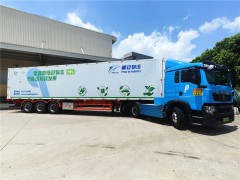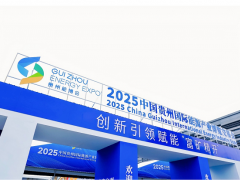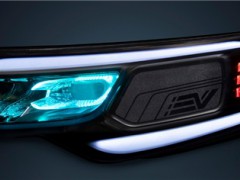據(jù)油氣工程5月7日消息稱,川崎重工、洋馬動力技術(shù)公司和日本發(fā)動機公司組成了一個日本發(fā)動機制造商財團,共同開發(fā)用于遠洋和沿海船舶的氫燃料船用發(fā)動機,以建立世界領(lǐng)先的氫發(fā)動機技術(shù)地位。
隨著減少溫室氣體排放的需求日益增加,預計船用發(fā)動機將在未來幾年轉(zhuǎn)向各種替代燃料。在眾多替代能源中,氫作為一種零排放燃料,在能源和移動工業(yè)領(lǐng)域的廣泛應用正吸引著全球的興趣。這些公司正在尋求開發(fā)氫值鏈中的技術(shù),以期在全球范圍內(nèi)擴展這種重要的替代燃料。通過在氫燃燒、材料、密封技術(shù)等基礎實驗和分析等共同基礎技術(shù)上的合作,以及船級社的要求,公司的目標是在2025年前將氫燃料發(fā)動機推向市場。
川崎重工將開發(fā)中速四沖程發(fā)動機,洋馬爾動力技術(shù)公司將專注于中、高速四沖程發(fā)動機,日本發(fā)動機公司將開發(fā)低速二沖程發(fā)動機。所有這三項同步發(fā)展將增強推進和輔助(發(fā)電機)發(fā)動機的產(chǎn)品線,適用于各種各樣的船舶。此外,將開發(fā)一個氫燃料儲存和供應系統(tǒng)作為綜合氫燃料系統(tǒng)的一部分。
以獨特的發(fā)動機為基礎,開發(fā)先進的氫船用發(fā)動機技術(shù),快速投放市場,該財團將為日本造船業(yè)做出貢獻。此外,這些公司還旨在通過促進對船用氫燃料發(fā)動機技術(shù)的采用來振興日本海洋工業(yè),并實現(xiàn)可持續(xù)發(fā)展的社會。
朱佳妮 摘譯自 油氣工程
原文如下:
Japanese manufacturers cooperate on development of hydrogen-fuelled marine engines
Kawasaki Heavy Industries Ltd, Yanmar Power Technology Co., Ltd, and Japan Engine Corp. have formed a consortium of Japanese engine manufacturers to pursue joint development of hydrogen-fuelled marine engines for ocean-going and coastal vessels towards establishing a world-leading position in hydrogen engine technologies.
With the growing need to reduce greenhouse gas emissions, marine engines are expected to transition to various alternative fuels in the coming years. Among the many alternatives, hydrogen is attracting global interest for its application in a wide range of energy and mobility industrial sectors as a fuel that offers zero-emissions. The companies are looking to develop technologies in the hydrogen value chain towards global expansion of this important alternative fuel. By cooperating on common fundamental technologies such as basic experiments and analysis on hydrogen combustion, materials, and sealing techniques, as well as classification society requirements, each company aims to bring hydrogen-fuelled engines to the market by 2025.
Kawasaki Heavy Industries will develop medium-speed 4-stroke engines, Yanmar Power Technology will focus on medium- and high-speed 4-stroke engines, and Japan Engine Corp. will embark on the development of low-speed 2-stroke engines. All three simultaneous developments will enhance the product lineup of propulsion and auxiliary (generator) engines for a wide range of vessels. In addition, a hydrogen fuel storage and supply system will be developed as part of the integrated hydrogen fuel system.
By developing advanced hydrogen marine engine technologies based on the distinctive engines and quickly launching in the market, the consortium will contribute to the Japanese shipbuilding industry. Furthermore, the companies aim to revitalise the Japanese maritime industry and realise a sustainable society by promoting the uptake of hydrogen-fuelled engine technology for marine vessels.?
免責聲明:本網(wǎng)轉(zhuǎn)載自其它媒體的文章,目的在于弘揚石化精神,傳遞更多石化信息,并不代表本網(wǎng)贊同其觀點和對其真實性負責,在此我們謹向原作者和原媒體致以敬意。如果您認為本站文章侵犯了您的版權(quán),請與我們聯(lián)系,我們將第一時間刪除。







